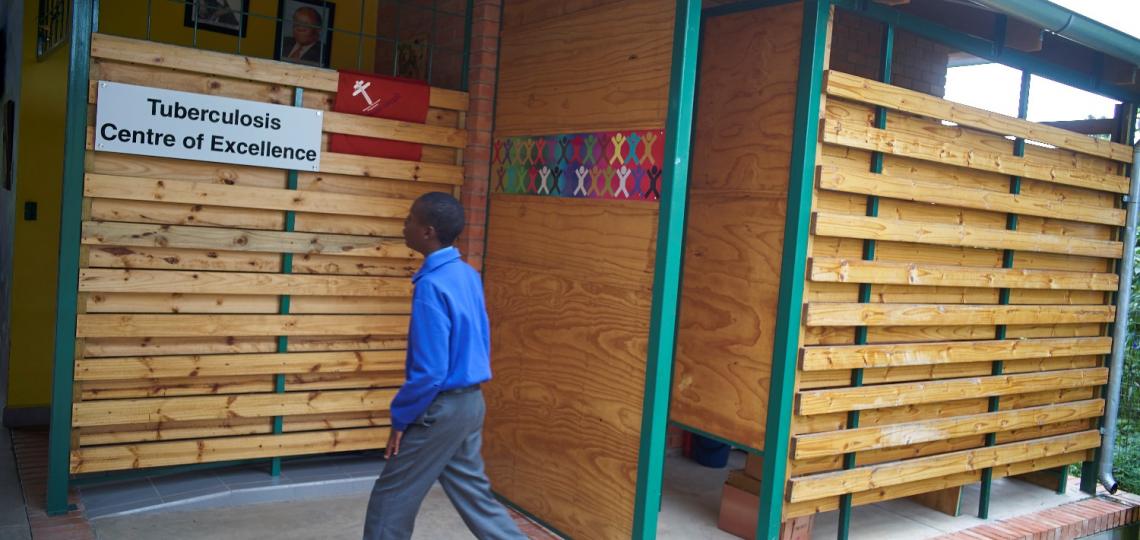
About the Program
The Global Tuberculosis Program began in 2011 with the recruitment of world-renowned pediatric TB expert Dr. Anna Mandalakas to Baylor College of Medicine and Texas Children's Hospital in Houston, Texas. The mission of the Global TB Program is well aligned with the World Health Organization Sustainable Development Goals and uses the tools of research, education, and advocacy to prevent, diagnose, and treat tuberculosis in children.
The long-term goal of our program is the establishment of a network of Tuberculosis Centers of Excellence built upon Texas Children’s existing clinical infrastructure in Sub-Saharan Africa. Our Global TB Program team works in four inter-related areas including disease prevention, diagnostics, treatment, and immunology. These program domains are built upon a data collection core and complemented by rigorous epidemiological and operational research.
The Global TB Program leverages partnerships with other members of the Baylor College of Medicine family and collaborators at other institutions to develop effective, sustainable, standardized methods of diagnosing tuberculosis in children and identifying biomarkers correlating with progression from tuberculosis infection to disease, as well as standardizing screening processes to better characterize epidemiological risk factors for tuberculosis. The Global TB Program has also worked with the World Health Organization to perform an expert review of the diagnostic tool, GeneXpert to inform policy making on childhood TB diagnosis.
To stay updated with the latest and greatest GTB Program news, follow us on Twitter.
Pediatric Tuberculosis Education
Young Physicians and Junior Investigators
To ensure sustainable and long-term impact in the fight against childhood tuberculosis, the Global TB Program is intimately involved in the development of young physicians and junior investigators in Houston and globally.
The TB Program has assisted Global Health residents, pediatric clinical fellows, and post-doctoral fellows in developing TB-related research projects throughout Baylor’s expansive international network with notable projects in eSwatini, Tanzania, Uganda, Lesotho, and Papua New Guinea. In addition, our Global TB team takes great pride in the research mentorship provided to clinical fellows and global health core physicians working in our partner sites.
Collaboration of Other Departmental Fellowships
Childhood TB Training
The Global TB (GTB) Program is committed to education and training of tomorrow’s child TB leaders. We have leveraged a variety of venues to deliver these child TB specific trainings including postgraduate workshops and symposiums at the annual meeting of the International Union Against Tuberculosis and Lung Disease, and in-country trainings. All of the aforementioned trainings and workshops have granted the GTB Program the opportunity to equip clinicians and supportive partners–both nationally and internationally – with the required skills to serve children and families affected by TB in their communities.
Working with local and international partners, a collection of national TB workshops have been presented that were tailored to meet country needs and focused on special populations including children, people living with HIV, migrants, prisoners and other marginalized populations.
In design, these trainings consisted of small group discussions and lectures from subject matter experts with an audience of physicians, medical officers and nurses from around the world. To date, our GTB team has offered national trainings for TB learners from eSwatini, Tanzania, Lesotho, Uganda, Malawi, Botswana, Colombia, Papua New Guinea and Namibia. We are thankful to the many partners who have helped to make these trainings successful including colleagues from The World Health Organization, International Union Against TB and Lung Disease, UNICEF, Pan American Health Organization, International Organization on Migration, the US Centers for Disease Control and Prevention, Stellenbosch University, USAID, and national Ministries of Health.
TB Center of Excellence News
- CDC Podcast Interview: TB among Children and Teens at HIV Treatment Centers in Africa
- Fighting to close the GAP on global pediatric TB care
- Supporting community health in Papua New Guinea








